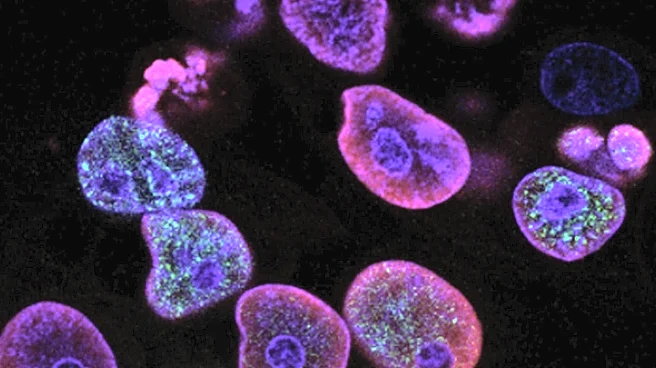What's Happening?
The field of amyotrophic lateral sclerosis (ALS) treatment is experiencing renewed optimism with the development of new therapies. Despite recent setbacks, including the withdrawal of Amylyx's Relyvrio and failures from Sanofi and Denali Therapeutics, the approval of Biogen's Qalsody has provided a glimmer of hope. At the BIO2025 convention, several companies highlighted their focus on ALS, with Boehringer Ingelheim's BI Venture Fund supporting biotechs like Rgenta Therapeutics and Libra Therapeutics. These companies are exploring novel targets for ALS treatment, while Korro Bio is developing an RNA-editing candidate. GATC Health is utilizing AI to analyze a large ALS dataset to discover new drug targets. The enthusiasm for ALS research remains strong, driven by the desire to offer new options to patients with limited treatment choices.
Why It's Important?
The resurgence in ALS drug development is crucial for patients who have few effective treatment options. The focus on novel therapeutic approaches, such as RNA-editing and AI-driven drug discovery, represents a shift towards more personalized and targeted treatments. This could lead to significant advancements in managing ALS, potentially slowing disease progression and improving patient outcomes. The continued investment in ALS research reflects the industry's commitment to addressing unmet needs in neurodegenerative diseases, which could pave the way for breakthroughs in other conditions like Alzheimer's and Parkinson's.
What's Next?
The next steps in ALS research will involve advancing promising candidates through clinical trials and exploring the potential of AI in drug discovery. Companies may seek partnerships to accelerate development and expand their therapeutic pipelines. Regulatory agencies will play a key role in facilitating the approval of new treatments, while patient advocacy groups may push for increased funding and awareness. The success of these initiatives could lead to a broader application of innovative therapies across various neurodegenerative diseases.








